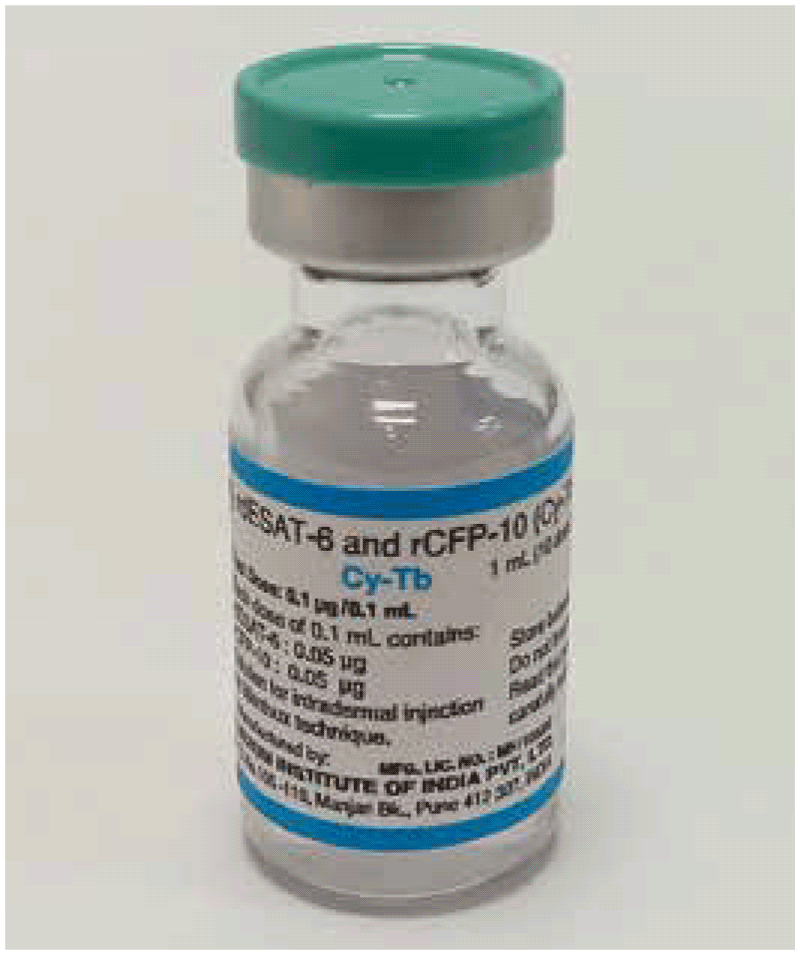كتاب روابط اجتياز لـ 1266
Cy-Tb (formerly known as the C-Tb test, Serum Institute of India) contains a 1:1 ratio of two recombinant proteins of ESAT-6 and CFP-10 was previously produced by genetically modified Lactobacillus lactis, by Statens Serum Institute (Denmark). One single test dose of 0.1 mL contains 0.05 μg of rdESAT-6 and 0.05 μg of rCFP-10.
Fig. 3.1. Vial of Cy-Tb

Source: Reproduced with permission of Serum Institute of India, ©2021. All rights reserved.
The manufacturer recommends administration using the Mantoux (i.e. intradermal) method. If there is a resultant reaction, the transverse diameter of induration only should be measured and recorded in millimetres after 48–72 hours (37).
Safety
The safety of Cy-Tb has been assessed in seven studies with a total of 2924 participants (38). No serious adverse reactions occurred in these seven studies. In four studies, all participants simultaneously received both Cy-Tb and Rt-23 (bioequivalent to PPDS (39)); in these studies, fever occurred in 32 of 1235 people (2.7%). However, it is difficult to be certain that the fever was due to Cy-Tb, given that all these people received both tests. Local injection site reactions are common; in five studies, participants received both Cy-Tb and Rt-23 simultaneously on opposite arms. Test administration was random and blinded, and assessment of local reactions was also blinded. In these five studies, the relative risk of local reactions was 1.05 (95% confidence interval (CI): 0.7 to 1.9) indicating no significant difference in local site reactions with Cy-Tb compared with traditional tuberculin skin tests. Over 95% of these local reactions were judged mild to moderate.
Pregnancy and lactation
To date, fewer than 300 pregnant women have received Cy-Tb, with no evidence of related adverse fetal outcomes (37). Similarly, there is limited information on safety in lactating women, but no adverse effects on breastfeeding infants have been reported (nor are they expected, given the limited systemic absorption of the intradermal test material).
Contraindications
The only contraindication is allergy to products from Lactobacillus lactis (37).

 تعليق
تعليق